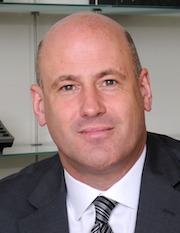Early this month Comms Dealer was sad to report the death of comms industry stalwart John Massey. John's funeral arrangements have now been made and his partner Jean has invited friends and colleagues to attend (details below).
Perhaps best known as the founder and MD of Essex-based Actimax, Massey's channel roots reach back 30-plus years and his experience enabled Actimax to deliver impressive results ahead of the acquisitions of Universal Office Automation and Network Resource Group, and the relaunch of Actimax under the Cloud XL brand name in 2011.
Latterly Massey was Director of Acquisition at Arrow Business Communications.
Nigel Sergent, Editorial Director Comms Dealer, commented: "John Massey was one of the 'nice guys' of the industry and he will be sorely missed by all that knew him.
"I first got to know him as the owner of Callback Communications in the mid-nineties and was a long standing industry friend and advisor since then.
"As Managing Director of Actimax he was often featured in Comms Dealer and, through his leadership, Actimax were regularly a finalist or winner at the Comms National Awards.
"In his 'retirement' from frontline industry roles he served as a judge for the CN Awards and his professionalism, attention to detail and determination to be fair and honest in his appraisals summarised his life and career. Our thoughts are with his family and his partner Jean."
John's funeral will be held at Harwood Park Crematorium, Watton Road, Stevenage, SG2 8XT, on Thursday 18th June at 11.45am, followed by a celebration of his life at John's family home in Hertford.
Jean has requested family flowers only, and donations can be made to the Isobel Hospice which looked after John so well.

 ShoreTel's VP and MD for EMEA Adrian Hipkiss has urged non-specialist cloud suppliers who fall short of customer expectations to become better educated on the issues surrounding cloud migration. His call for action is a response to research by the Cloud Industry Forum (CIF) that revealed 35% of IT leaders were under serviced by their cloud suppliers during the migration process.
ShoreTel's VP and MD for EMEA Adrian Hipkiss has urged non-specialist cloud suppliers who fall short of customer expectations to become better educated on the issues surrounding cloud migration. His call for action is a response to research by the Cloud Industry Forum (CIF) that revealed 35% of IT leaders were under serviced by their cloud suppliers during the migration process. Pennine Telecom's first outing in the Salford Dragon Boat Festival didn't end in victory but the team are all winners having raised £1,200 in aid of Bury Hospice - a figure matched by Pennine Telecom bringing the total amount raised to £2,400.
Pennine Telecom's first outing in the Salford Dragon Boat Festival didn't end in victory but the team are all winners having raised £1,200 in aid of Bury Hospice - a figure matched by Pennine Telecom bringing the total amount raised to £2,400.